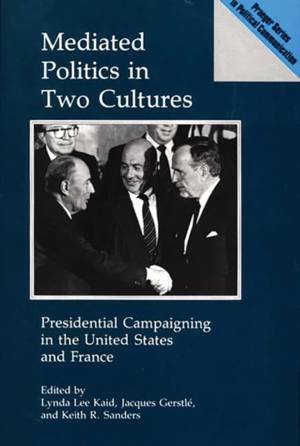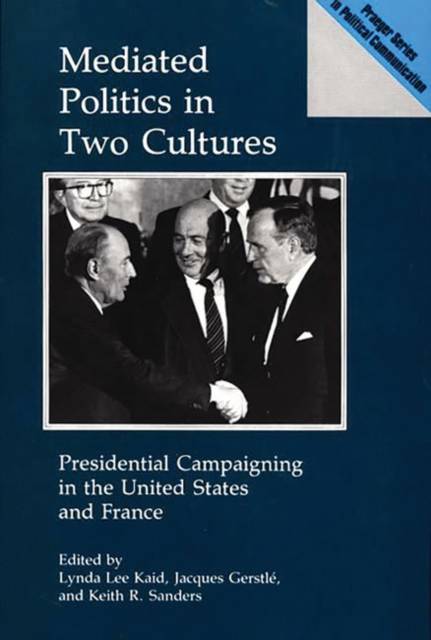
- Retrait gratuit dans votre magasin Club
- 7.000.000 titres dans notre catalogue
- Payer en toute sécurité
- Toujours un magasin près de chez vous
- Retrait gratuit dans votre magasin Club
- 7.000.0000 titres dans notre catalogue
- Payer en toute sécurité
- Toujours un magasin près de chez vous
Mediated Politics in Two Cultures
Presidential Campaigning in the United States and France
Jacques Gerstle, Lynda Kaid, Keith R. Sanders
161,45 €
+ 322 points
Description
This first comparative study of the political communication processes in the United States and France brings together researchers from both countries to examine differences and similarities between the media's involvement in each nation's 1988 presidential election campaign. The book analyzes the construction of mediated political reality in the two countries, and concludes that French media do not concentrate more on policy issues than do American media.
The authors discuss television news and newsmagazine coverage of the overall campaigns and their particular political debates, television commercials and broadcasts, and political posters. Also assessed are the interactions between party/candidate presentations of political reality and voter interpretations of that reality. The contributions are grouped into four sections: Comparing Politics in Two Cultures, which includes discussions of constructing a political communication project and the theoretical dimensions of the studies; Mediated Campaign Messages, which contains analyses of reality construction, political advertising, and political broadcasts; Media Coverage of the Campaigns; and Implications of Mediated Campaigning, which covers the effects of television broadcasts on voter perception and possibilities for improving the electoral process. This work is a useful resource for students, scholars, and politicians interested in political communication and comparative politics, as well as for journalists and members of the media.Spécifications
Parties prenantes
- Auteur(s) :
- Editeur:
Contenu
- Nombre de pages :
- 320
- Langue:
- Anglais
- Collection :
Caractéristiques
- EAN:
- 9780275935955
- Date de parution :
- 30-09-91
- Format:
- Livre relié
- Format numérique:
- Genaaid
- Dimensions :
- 156 mm x 234 mm
- Poids :
- 621 g

Les avis
Nous publions uniquement les avis qui respectent les conditions requises. Consultez nos conditions pour les avis.






